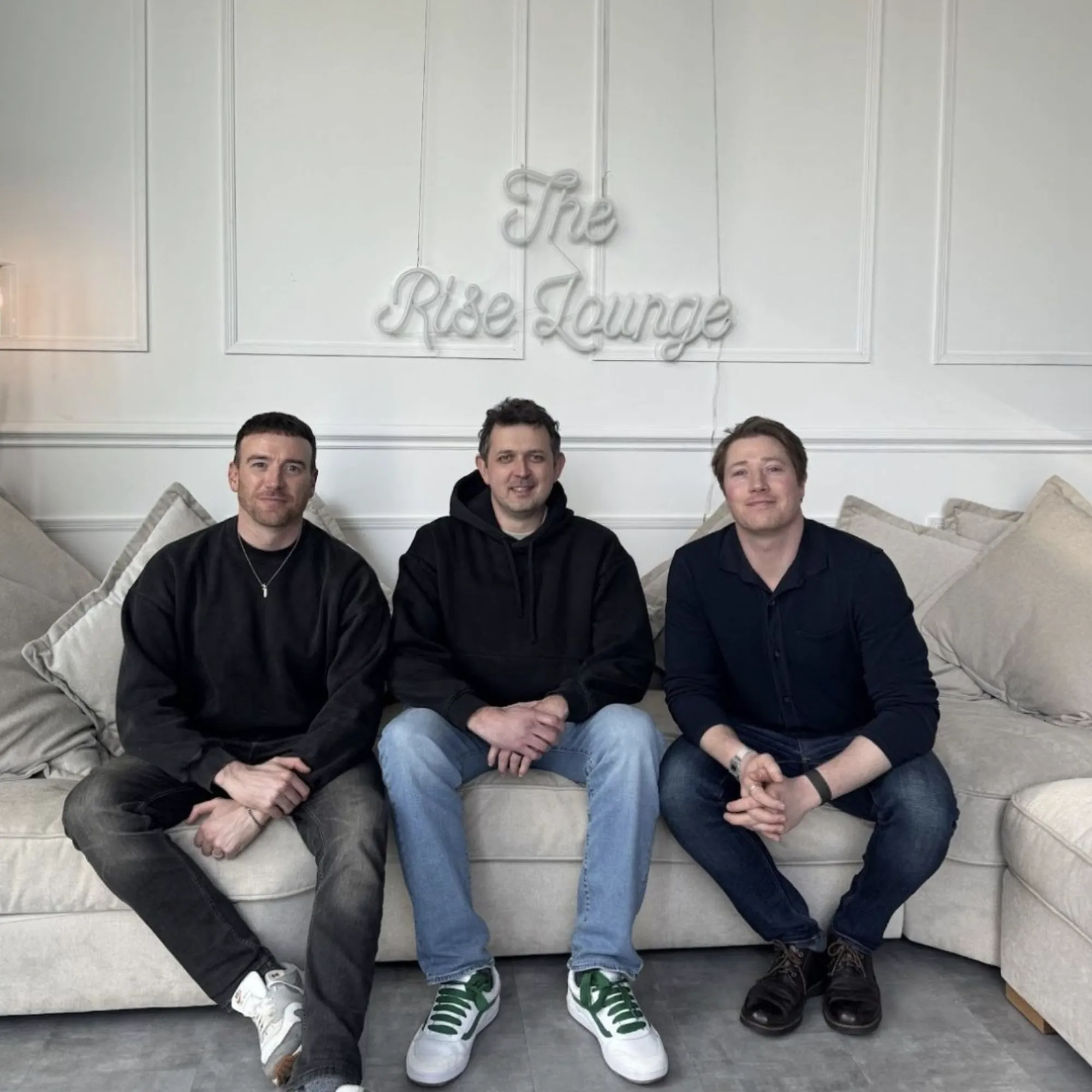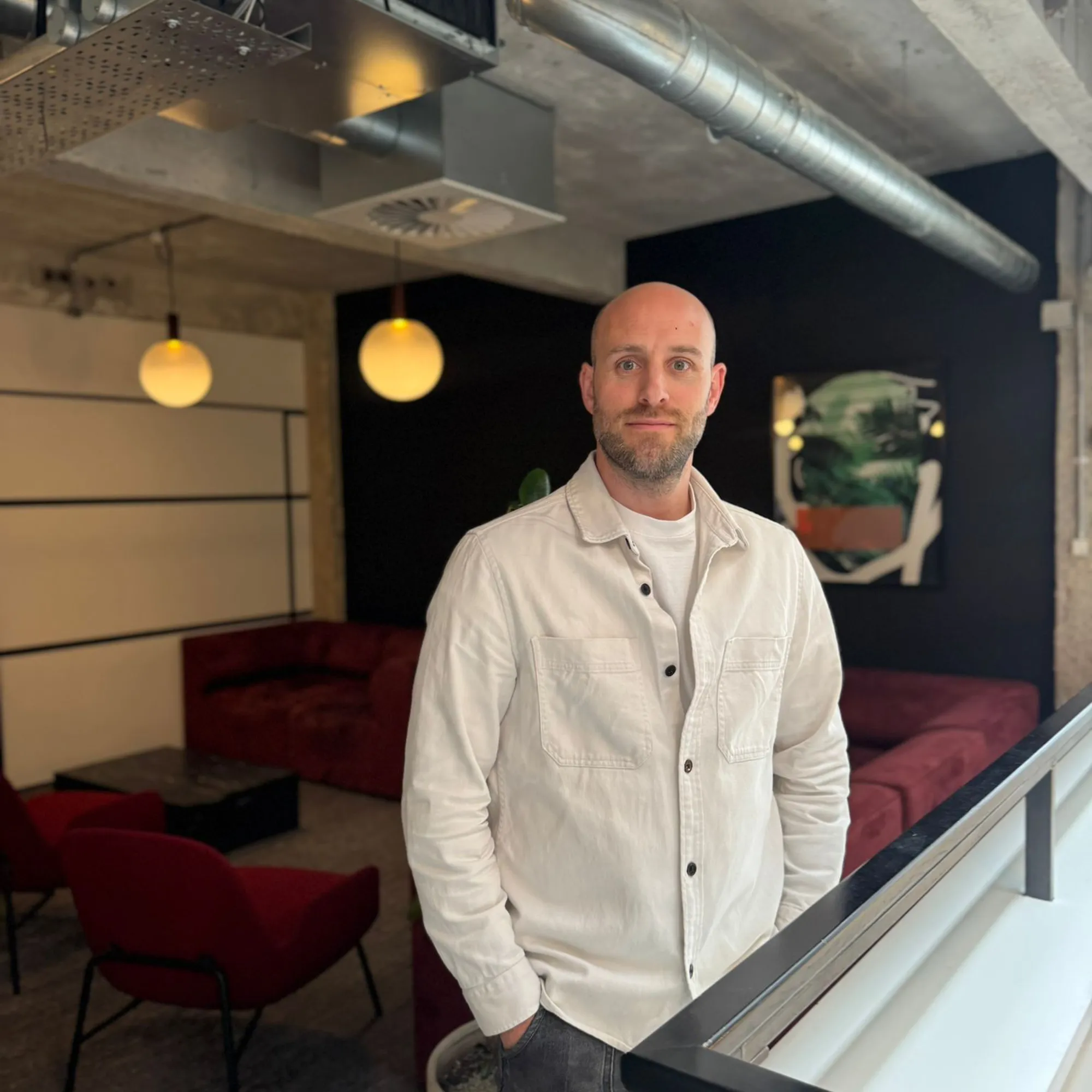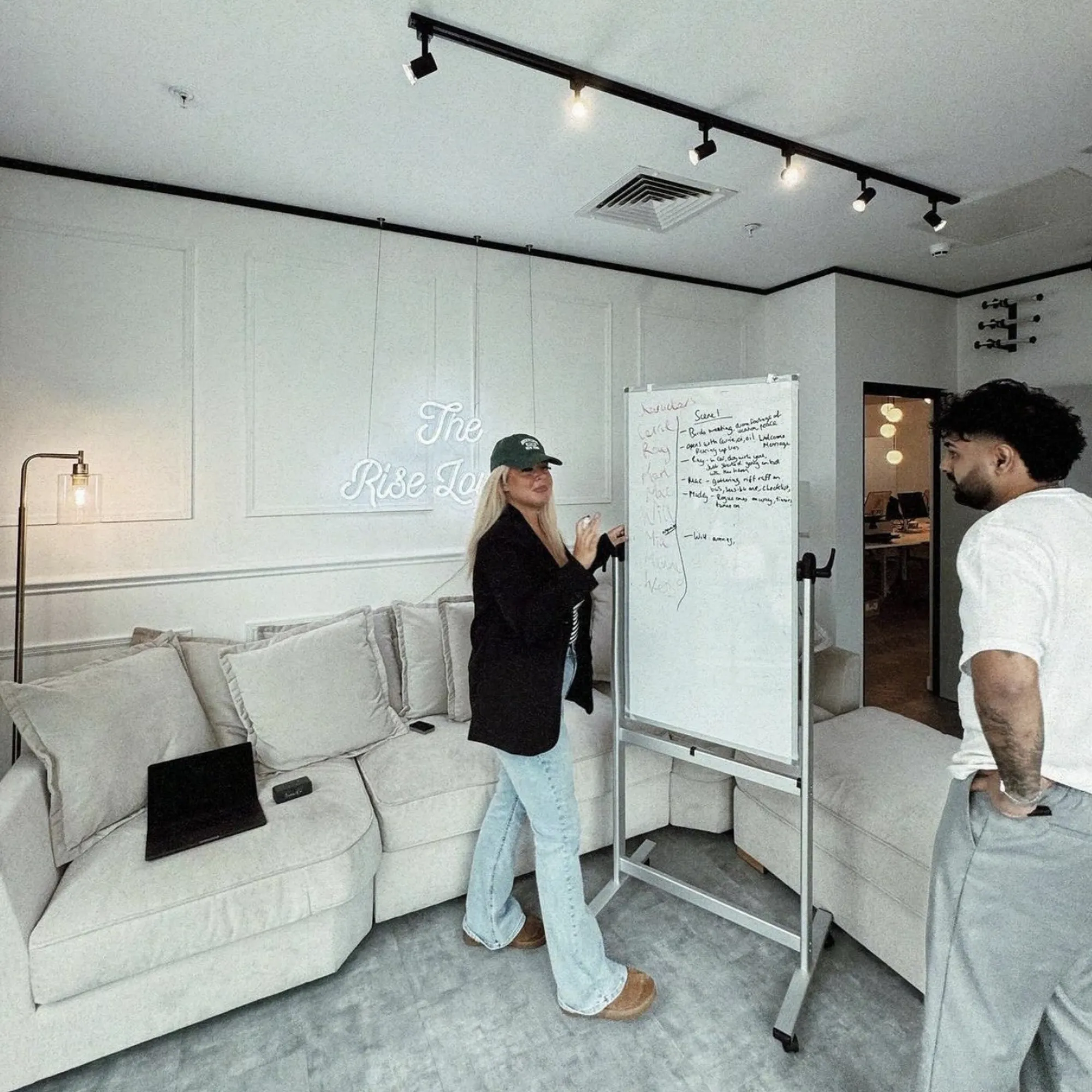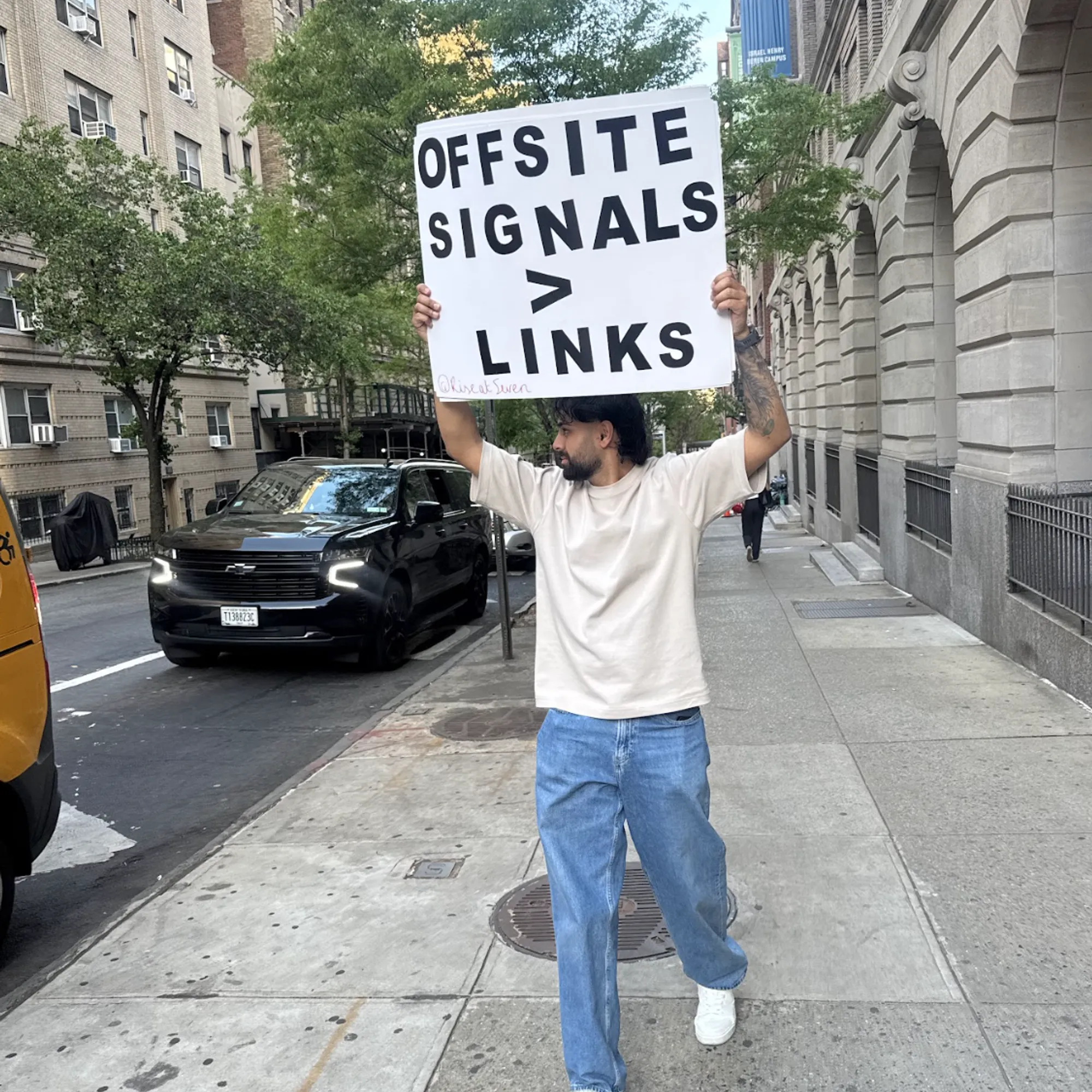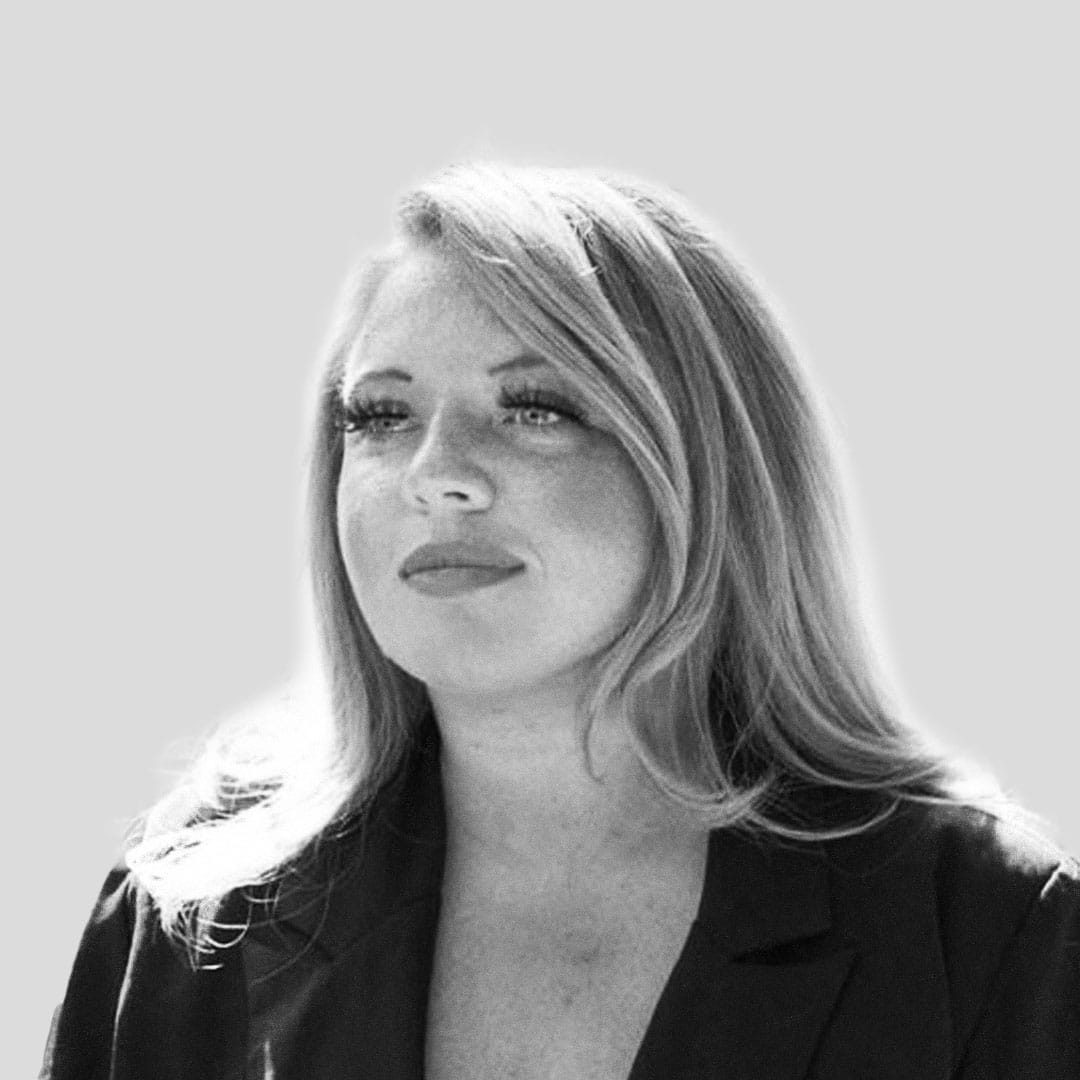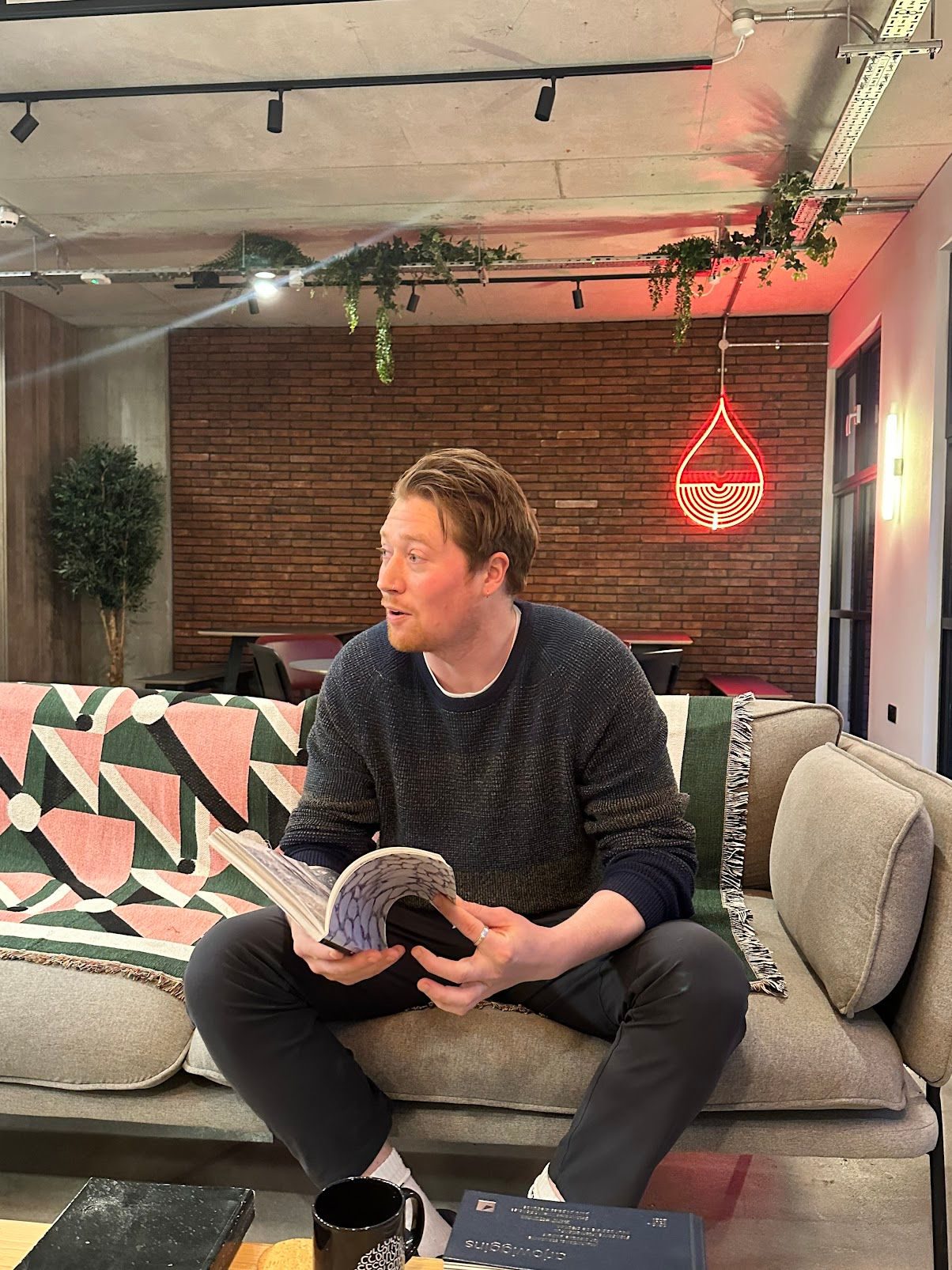So you’ve established your Digital PR offering in English speaking countries, you're growing organically in the UK, Europe and Canada but now you want to grow your trust and authority using digital PR in Germany? What about Spain, Italy or Poland? The question most brands ask is, should I hire agencies within those countries? Can they do it and repeat the success in the UK? What agencies are good at Digital PR for European countries? Well after seeing years of growing demand in this space, with little success by other agencies we at Rise at Seven launched our very own international team.
Rise at Seven expanded to Germany, Spain, and the Netherlands - here's how we did it!
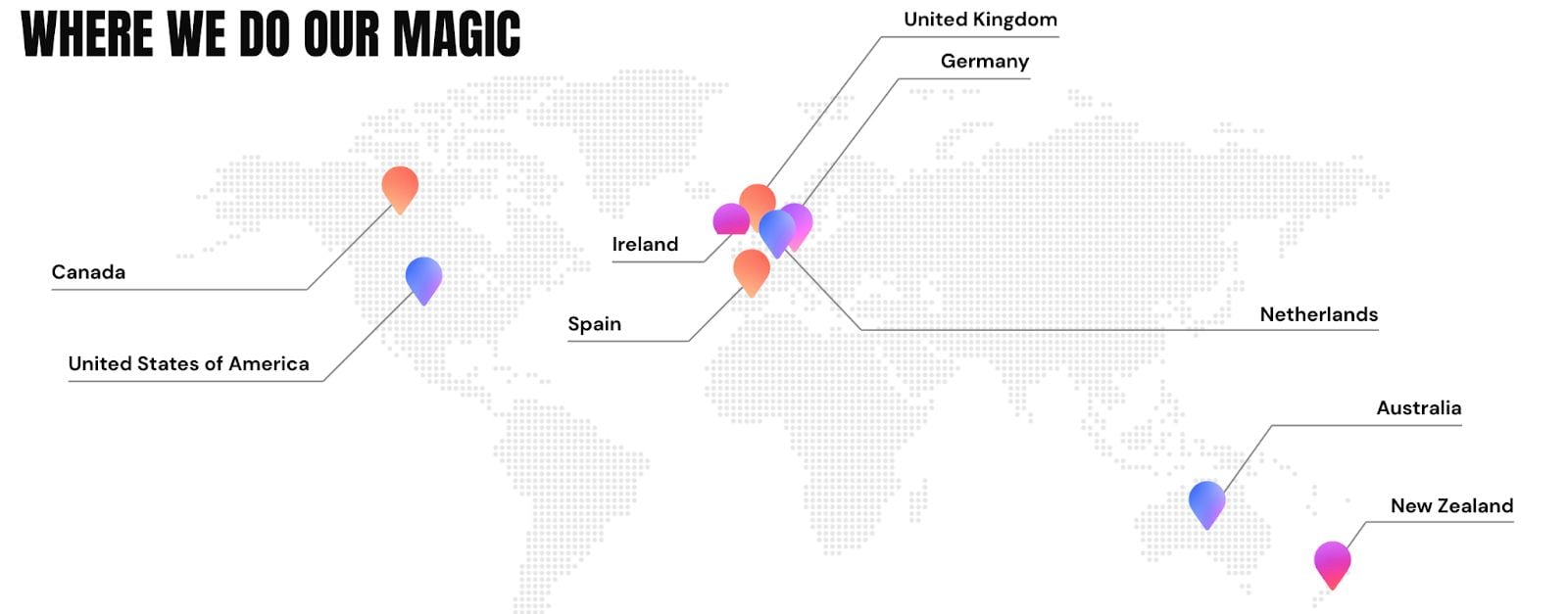
My name is Nicole and I’m leading the international Digital PR department at Rise at Seven. Together with my team, I’ve been building the international offering from scratch which means I know exactly what to look out for, what to do and what not to do when it comes to expanding your PR offering internationally.
Rise at Seven spotted a gap early on. They realised early in 2021 that there’s a gap in the European markets for Digital PR. In countries such as Spain, Germany, France, Italy and The Netherlands, Digital PR is still fairly new.
We noticed our campaigns were getting organic pick up across Europe without even having to target those countries. British PR’s were sending English press releases with an international angle to publications across Europe! So, what would happen if we employed native speakers who know those media landscapes like the back of their hands to dedicate their time to targeting European publications?
Well one day, a global client approached us about expanding internationally. They invested in us to expand to Germany, then Spain, then Netherlands and if it worked they would be our long term partner. Rise at Seven hired native speakers to train them up, in German Digital PR, Spanish Digital PR and Digital PR in the Netherlands turning them into international experts.
The results? We managed to build hundreds of links in top tier publications, TV mentions, print coverage, radio, you name it.
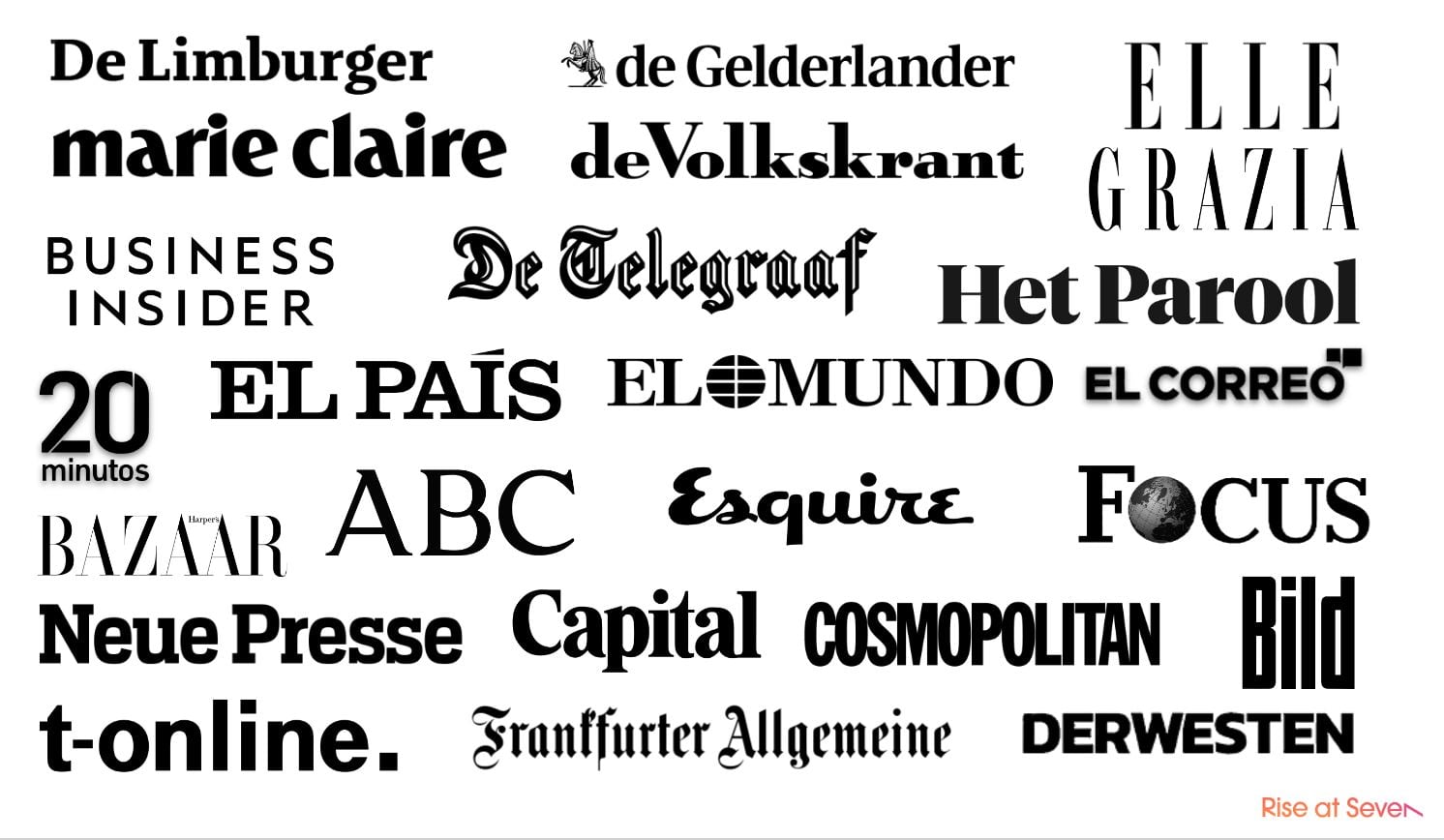
Several clients then expanded their business with us - from travel, finance, beauty and lifestyle. We’ve included our global clients in conversations where their target audience is, whilst improving their website’s ranking. But, it’s important to know that this didn’t happen overnight. Building a completely new market from the ground isn’t easy. It takes time and it comes with lots of learnings along the way. To make it easier for you, I’m sharing some of my learnings and the do’s & don’ts for if you want to expand to Europe.
Digital PR in Europe
There's an opportunity! For those wanting to build links on German nationals, or the top tier publications in Spain - journalists don’t yet get spammed by Digital PR’s with 300 emails a day and your campaign idea hasn't been done by 38 other agencies in the same year. Not to mention, there are many brands out there who have never heard of Digital PR and the magic you can create with it, which ultimately means lots of opportunities.
Learnings:
- Hiring into your team? Recruiting a native European speaker who is living in the UK, has Digital PR experience and knows the European media landscape is like finding a Brit who doesn’t like tea… Essentially mission impossible. Instead of spending lots of money on recruitment to find that one gem, look for people with experience in media (preferably journalism). They will know what makes for a good story and a catchy headline. You can teach someone how to become a Digital PR expert, you can’t teach someone how to generate stories. It’s a skill. None of the international (Senior) Digital PR Managers in my team had any Digital PR experience, including myself. However they all had a background in journalism or media. With the right training, any good writer can become a Digital PR expert.
- Hire multilingual people in your team so they can work across markets. In my opinion ‘what languages do you speak?’ should be a mandatory interview question at Rise at Seven. Someone who speaks multiple languages is a dream hire in my team with the ability to grow to new markets..
- Give yourself time to build relationships with journalists. You can’t expect this to happen within a few months. Building relationships can take years. Great things take time after all! Thank them for covering, share the wins with them, go meet them if you can.
- Train the wider business on the difference between the UK/US and the international markets. For example, in countries such as the Netherlands and Germany journalists have high expectations from data-led campaigns. They compare them to government funded studies, which means we had to train our data team on the difference in client expectations between UK vs. international clients, what data sources to use and more importantly what data sources not to use.
Do’s & Don’ts of Digital PR in Europe
Do’s:
Research the media landscape
Every country is different and so is its culture and media landscape. Research how many publications and journalists there are, what percentage of the publications are digital, but also look into the behaviours of the inhabitants: how many people trust the news, do they read the news via mobile/desktop, etc. It all says a lot about your chances in the market and based on the outcome of your research you can set KPIs. Ensure to share your research with the wider business. This way the project management team knows it will take you longer to create a seeding list and why (some tools such as Vuelio and Hunter work better in the UK than in the Netherlands for example). The client services team can manage client expectations better because they understand the markets and the sales department will know what realistic KPIs are for the different international markets.
Hire a native speaker who speaks the language and knows the media landscape
The only way to succeed in a market is to hire native speakers who know the media landscape. For example as a Dutch native, I know what topics are newsworthy, what’s trending, what publications to outreach to, what data sources to use, as well as cultural references. I couldn’t have had the same success in the Dutch market, if I wasn’t Dutch. Besides this, it’s valuable that native speakers know the media landscape, they can also write the content and press releases in their given language, which obviously has an impact on the results and your press releases not instantly going to the spam folder. On top of that, approaching journalists in their own language is helpful when it comes to building strong relationships.
Hire in advance
As I mentioned before, hiring multilingual digital PR’s is difficult. The Digital PR industry is booming and more and more agencies are aiming to go international - this means there’s a hunt for each other's talents at the moment. I would advise you to hire in advance, as it can take months to recruit the right person.
Talk to journalists from your potential markets
In order to work with journalists across multiple countries, you have to understand their ways of working. The way journalists work will differentiate from country-to-country, but also from publication-to-publication and even from team-to-team. Asking them a few questions can have a huge impact on your results. For example, when do they have their editorial meetings so you know what day and time is best to send a press release? It’s also important to understand their objectives. Is it page views? Or interactions on social media? The time their readers stay on the website? What about their daily/weekly targets? For example, how many articles are they writing a day? How much time do they have to write an article? Journalists in the UK have high targets, which means they need to write an article in an hour or so, whereas in the Netherlands journalists tend to have more time to research the topic and look into your methodology before writing an article. Another question to ask is how do they like to be approached? In France and Germany it’s very normal to speak to journalists over the phone, whereas in the UK journalists don’t have time to call and prefer to receive press releases via email.
Don’ts
Don’t expect results overnight
You can’t expect to get instant success. Building a completely new market from the bottom up takes time so you have to be patient. It took us a year to crack the code. Some campaigns early in the expansion flopped, because at that time we didn’t have the experience and knowledge we have now and that’s fine. Keep track of your results (what topics do well and why?) and report your learnings (what didn’t work and why?).
Don’t compare yourself with the UK market - how to KPI?
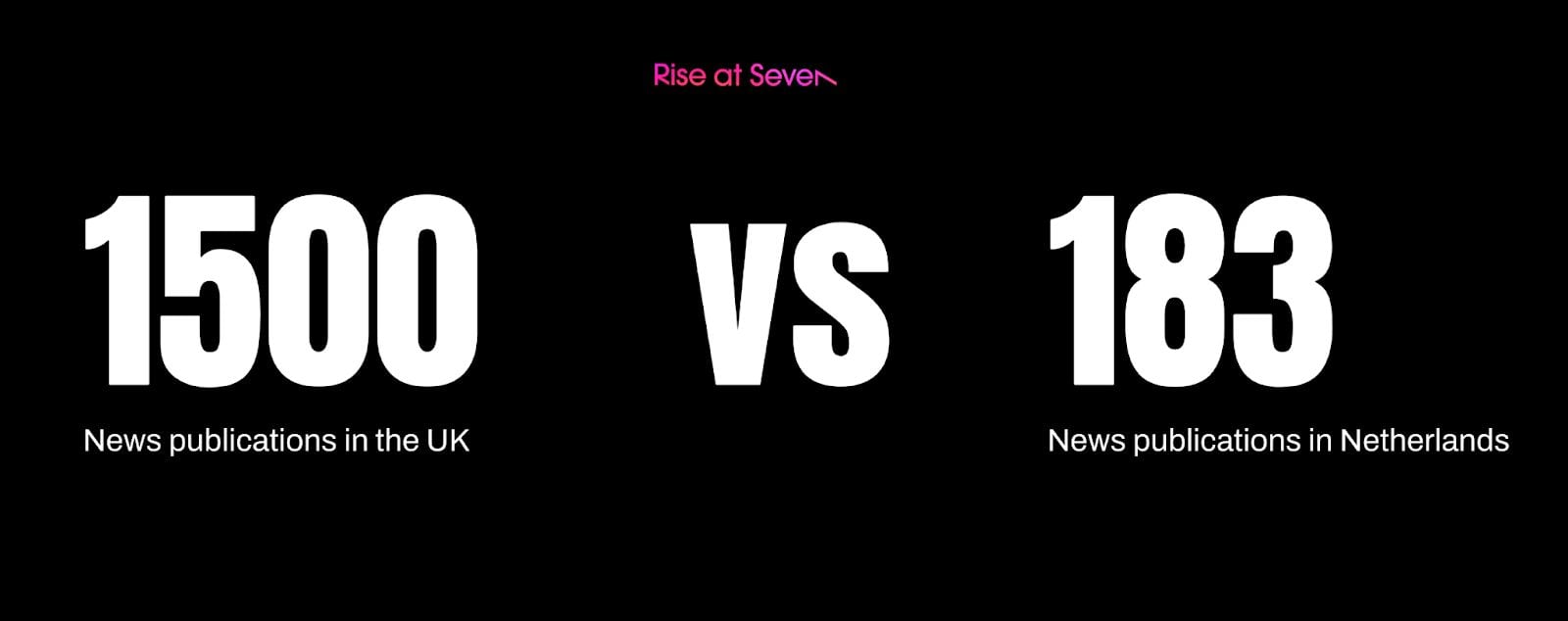
I can’t stress enough how important it is to not compare yourself to others. Not only in your private life, but also in the workplace. When it comes to Digital PR in European countries, you simply can’t compare your strategy, ways of working and results to the UK and US. The European Digital PR industry is less developed as it is in the UK, clients have different expectations and the media landscapes are way smaller and different. For example, there are 92,000 journalists in the UK, but only 25,000 targets in the Netherlands. Also from looking at the amount of publications, there’s a big gap between the opportunities you have in the UK vs. the Netherlands. 1,500 news publications in the UK compared to 183 high quality publications in the Netherlands. You can’t expect the same results for both countries and therefore this should be reflected in the client KPI’s, but also in the link KPI’s you set for your team (if you have any).
Don’t recycle campaigns in different countries
There’s no one size fits all. At Rise at Seven, we work with multi-market clients. From experience, we’ve learned that you can’t recycle one campaign across different markets. For example, one campaign can be a big success in the UK, but a total failure in Germany. In the UK lighthearted, fun campaigns do well. Think of dream jobs and fictional characters campaigns. However, in Germany journalists are more likely to cover data-led campaigns with statistics, a newsworthy story and a regional angle. Not to mention, the methodology needs to be bulletproof. It’s important that you always localise your campaign to the country to make it relevant to its audience.
Don’t give up, keep pushing!
As I mentioned before, building a complete new market doesn’t happen overnight. If we’re honest, the first six months were difficult and sometimes stressful. However, if you like a challenge it can be very rewarding to see the markets becoming successful.
What’s next for Rise at Seven? We’re growing the international markets and expanding our international Digital PR offering to more European markets. We rise to the challenge, uniting the best of both worlds to make your brand recognisable, trendy and conquer search results across the globe. Does that sound good? Drop us a line.
Do you have what it takes to become an international Digital PR?
Are you a wizard with words, do you speak multiple languages and are you keen to become an international Digital PR expert at Rise at Seven? Feel free to drop me a message via LinkedIn @Nicolesijbers or if you just want to chat about international digital PR, I’m also happy to connect!

